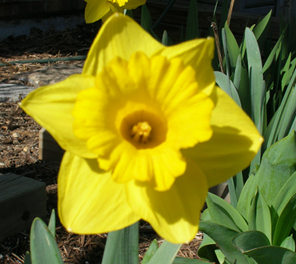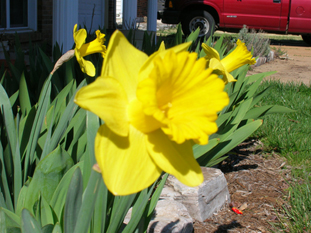Welcome! This blog is mostly about butterfly gardening, but other types of plants and gardens, as well as
other wildlife is blogged about too.
My first Black Swallowtail to emerge from its chrysalis did so today. (Actually it is the only Black Swallowtail I had over wintering.) It was a male and I managed to get a few decent pictures of it – here is one of them – on my hand before it flew off:
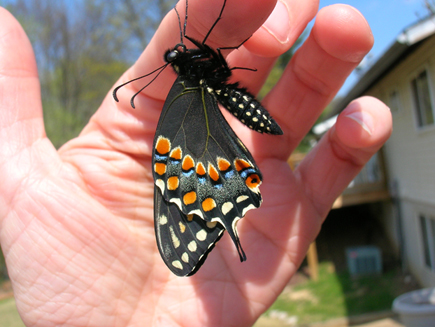
I’m also interested in carnivorous plants. These pictures are of blooms on a pitcher plant I have:
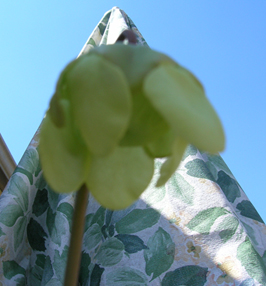
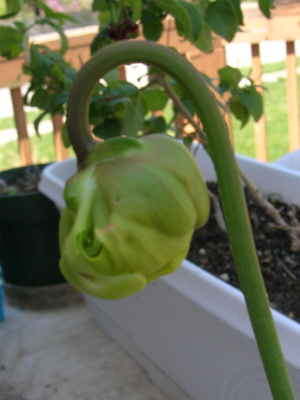
I was having so many problems with my old MT blog that I decided to just make a new one – this time with Word Press. The old blog will still remain on the site though. The old blog is here: http://www.butterflygardeningandconservation.com/blog
Sometime after my dad died a couple of years ago members of my family were given tulip bulbs by either our church or the funeral home (I can’t remember which now). Only one of mine bloomed this year:
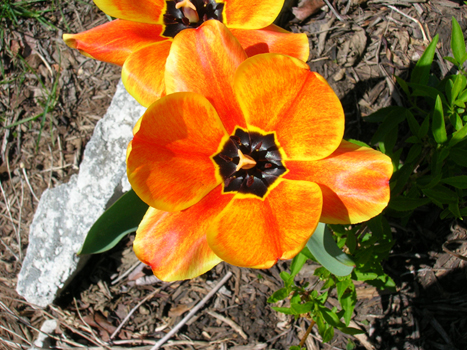
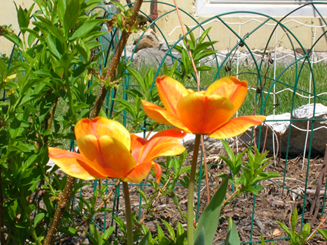
While I am mostly interested in butterfly gardening, my husband likes to garden too and grows many different types of plants. He also likes making small ponds and using rocks to landscape. Below is one of his pond areas when the daffodils were still blooming next to it.
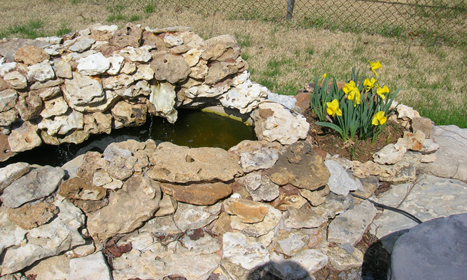
These violets are Bird’s Foot Violets (Viola pedata). I bought them because they are supposed to be host plants for the Regal Fritillary (Speyeria idalia). The last I heard, it is now believed that they are more likely to use the Prairie Violet as a host plant instead. Regal Fritillaries are relatively rare. One subspecies is, or nearly is, on the endangered species list. I’ve never seen one and it is unlikely that one will ever fly into my garden where I live. Both of these violets (Bird’s Food and Prairie) are native to North American. At one time, when much of the country was covered with native prairies and woodlands, these violets were growing all over the place. The Regal Fritillary was also a common butterfly then. But now, with so much native habitat destruction – very few prairies remain – the Regal Fritillary is seldom seen.
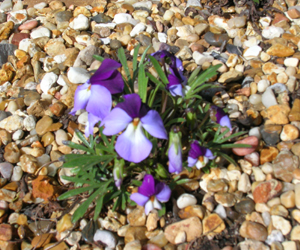
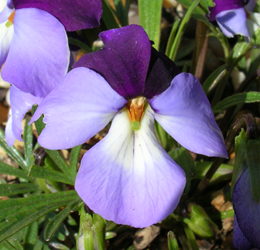
These flowers come in two different colors, here is a photo of one of the other color, taken a few days later:
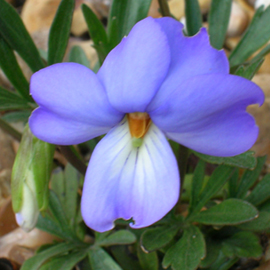
The wild violets that grow in our yard – Viola sororia are host plants for the Variegated Fritillary – I had one lay a bunch of eggs on them last year! Unfortunately, I’ve been very bad and have not added the pictures of the eggs or caterpillars to my site yet. Anyway, these violets were blooming very nicely when I took these pictures.
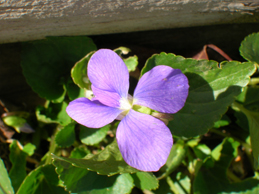
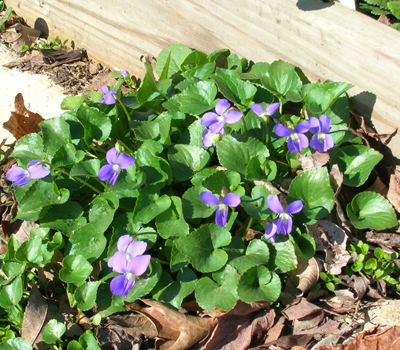
Here are a couple pictures of one of my spicebushes when they were blooming. Unfortunately, I can’t, or at least can’t figure out how to, get the small flowers in focus with our digital camera.
Spicebushes are, of course, one of the host plants used by the Spicebush Swallowtail.
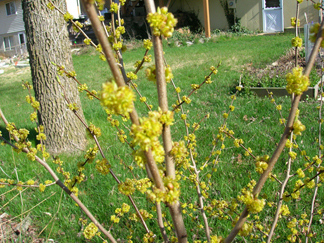
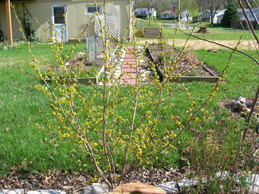
I love daffodils, even if they aren’t native and have no value to butterflies! I think they are beautiful and have some growing in a few different spots in our yard. I like the big, solid yellow ones best! This one, pictured below, if I remember correctly is the King Alfred variety which is mostly the type we have. (From the front of our house.)
